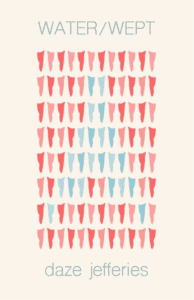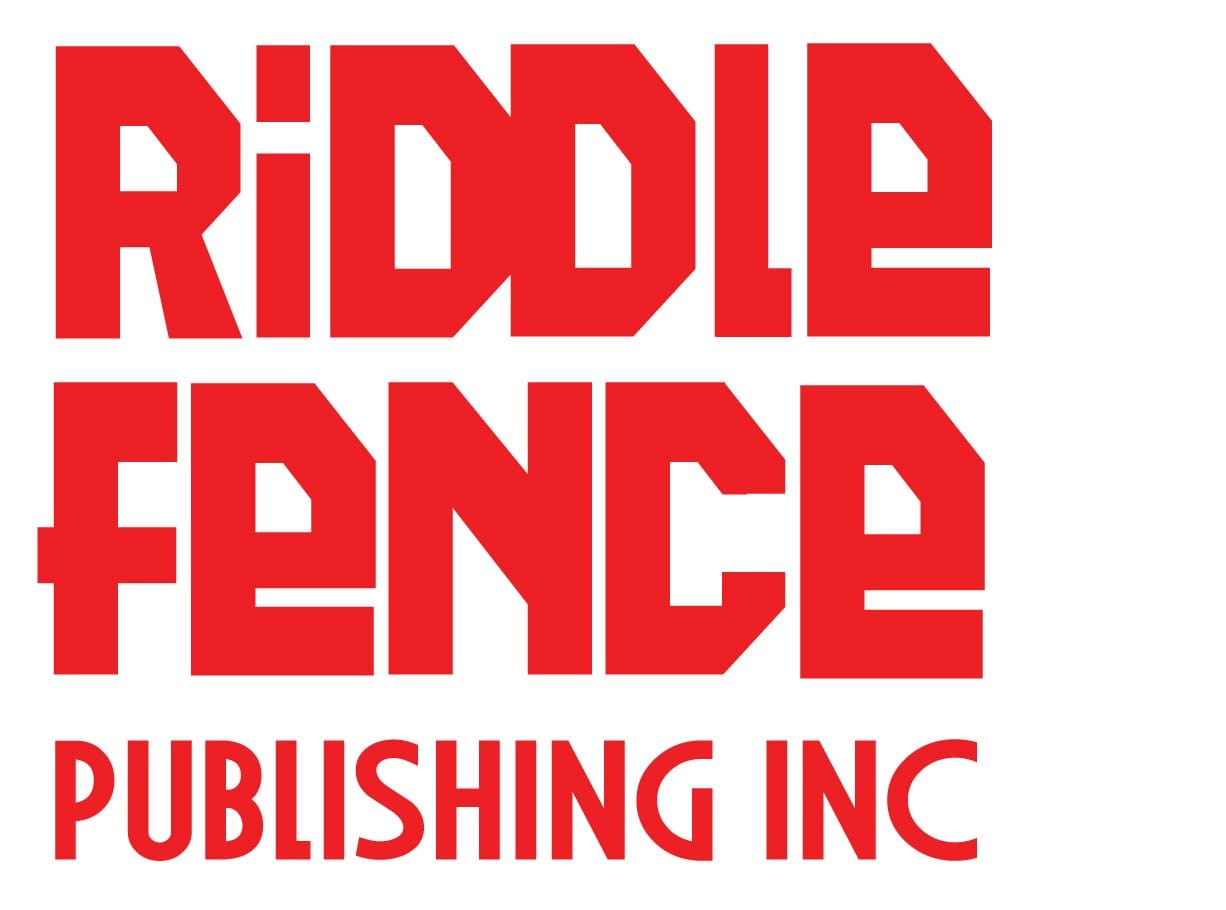
“blue joy has flown over landwash”: WATER/WEPT as an exploration of joy as resistance
Anstruther Press
Reviewed by Maggie Burton
Daze Jefferies’s debut chapbook extends a gentle, familiar hand to her readers. While she seeks to connect specifically with trans youth and trans sex workers, past and present, her work is a balm for the soul for anyone who grew up queer in rural Newfoundland. In this review, I approach Water/Wept as a queer, cisgender, settler woman who grew up in a rural Newfoundland and Labrador community around the same time as Jefferies.
Fifteen one-page poems make up this collection. It is a concept album of lyrical, sparse pieces and dense prose poems that work equally well viewed individually and as a whole. Breathy, consonant verse includes made-up words and formal, academic text. In #10, for example, a simple couplet written in what I’ll call proper English expands in a footnote, paying homage to Jefferies’s academic work while feeling free to invent words: “how badly i wanted to eat your ashes. / four years hooking + yet just passed. / hem haw somewhore. / a womanish promise.”
A womanish promise indeed, Jefferies’s playful, visual poetry queers the rural landscape and keeps joy at the forefront of each piece. Reading it, I was hauled back to my own youth, writing notes and scribbling drawings back and forth between friends, trying to make sense of growing up. Many island children of the codless ’90s will find something to relate to in this collection.
The poems and the images are visceral but soft. The cover itself is the first visual poem of the book. It features layers of blue and pink stockings, moonlighting as cod loins. A disclaimer in bubble-letter caps begins the book: each page is a raw, emotional fragment that will eat you alive – but in a good way! If water wept, then so shall you. A torn-open glove accompanies poem #2 – it is filleted, unsewn except for its middle, laid out to dry, perhaps representing “her skin hoax palimpsest.” Jefferies leaves space for future stories to join hers. In #11, two beings saunter around the cove like sister chromatids, and it is here the collection peaks – the rest is glorious aftercare. The speaker in these poems is very conscious of the beauty and the danger around her and seeks to help others navigate what she’s been through.
A treat for all the senses, Water/Wept is a reset for the nervous system. There is a mellow acoustic effect in the articulatory action within these poems. I long to hear them spoken by their author. Jefferies excels in transitioning readers from esoteric poems, from the “fathomless entanglement” at the end of #4, straight into a game of Pictionary in #5, a striking, cryptic portrait. (The answer is provided, cheekily, in parentheses as “shards of a marmayde embodiment in salt”). The visual and auditory brilliance of Jefferies’s writing is what makes Water/Wept a book I look forward to returning to again and again.
The Newfoundland vernacular is gleefully present throughout. A dogberry shrub in a drong is her version of the tree in the bog, down in the valley-o. Jefferies uses her delight in the folklore and language of her home province to create a world where trans sex workers are safe enough that it’s possible to joke that hormones might “forcibly sex change what’s left of the cod.” A mermaid with kelpy hair coarse as kink rope pulls others toward her so they can walk together along the ghostly, frozen coast, a home that’s got plenty of “halfway creatures already swallowed.”
Water/Wept evokes a lot of feelings about the passage of time. It is acquainted with before and after, with birth and death, with rebirth. Jefferies can hold on tight to memories of beating around the woods as a child while asking big questions about the future and what a nation-state itself might become. Transition in Water/Wept involves a sea voyage off the coast in “hope-holed rubbers.” It is a celebration of the search for home, of finding (creating?) a space to be oneself. After all, “affirmations turn at twelve/twelve-thirty in newfoundland.” There is love and humour in Jefferies’ writing.
Many contemporary cultural disputes are about how complex histories change when someone writes a new layer of meaning over them. Through both a new use of old words and an old use of new ones, Jefferies cheerfully blurs the past and present, creating an intertidal rift between them through which beauty can emerge unfettered. I look forward to her next collection.
Originally from Brigus, Maggie Burton currently lives in St. John’s with her blended family, including four young children, a plethora of small animals, and her partner, Michael. Trained as a classical violinist, Maggie is a multi-disciplinary performer with a background in arts administration and music education. Maggie started writing poetry after having kids at the age of twenty. Currently, she dedicates her time to community-oriented work and writing.
